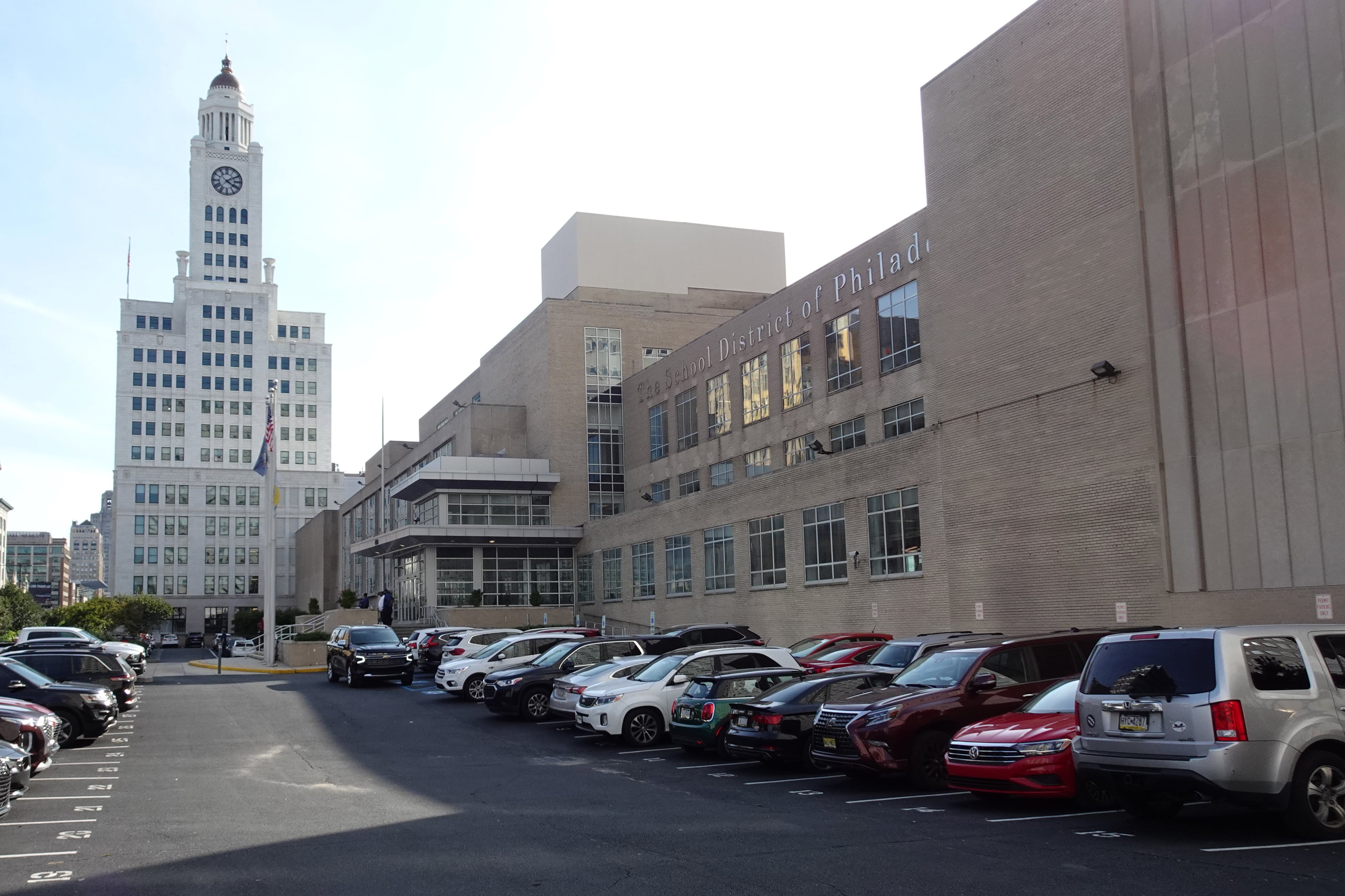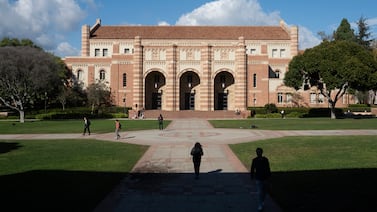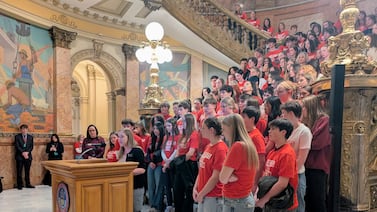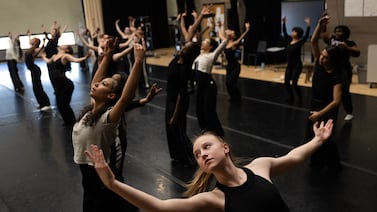Philadelphia district leadership never deliberately discriminated against Black-led charter schools in decisions relating to authorizing, expanding, and closing the independently managed, publicly funded schools, according to a report released Friday.
At the same time, the law firm Ballard Spahr concluded in its 132-page report that what it considered a problematic authorizing process could lead to worries about bias. It called the rate of closure of Black-led charter schools “concerning” and said complaints from charter leaders interviewed “raised issues that corroborated systemic reasons” that could explain the perception.
Based on the firm’s review, “Black-led charter schools have been subject to nonrenewal proceedings and/or closure actions in greater numbers than their peers.”
The board commissioned the investigation two years ago after allegations of racial bias from the African American Charter Schools Coalition, which represents 17 of 21 Black-led charter schools. It was conducted pro bono by Ballard Spahr, with a data analysis by the Center for Urban and Racial Equity at a cost to the district of $55,000.
“The investigation has not revealed any evidence of intentional [sic], overt racially discriminatory acts by any [School Reform Commissioner], Board of Education member, or [Charter Schools Office] employee against a charter leader,” the report said.
But the charter coalition said in a statement that the report actually backs up its claims of discrimination.
“Our limited review of the document substantiates our assertions that the charter renewal process is flawed and broken — contrary to the Philadelphia Board of Education’s assertions. What we’ve learned thus far is that the report, coupled with the data initially presented by our organization related to disparate outcomes for Black operated schools, shows that the public charter school authorization process needs to be completely overhauled.”
The report itself said that “not all the charter leaders interviewed alleged intentional discrimination,” but some “opined that the charter authorizing system suffered from systemic bias and other flaws.”
Board of Education President Reginald Streater said in an interview that board members are “pleased, not a happy pleased, but pleased [that] the investigation has not revealed any evidence of intentional or overt racially discriminatory acts by the board or charter office against any charter leader,” and that there is “no finding that any charter closure was done improperly.”
The investigation found that district leaders themselves became concerned about this issue as early as 2017, but that there is no “evidence that the district took meaningful steps to address or investigate… Nor did the district otherwise characterize the matter as one of urgent concern.” It did not focus on the issue until the Black charter coalition raised it, the report said.
The report recommends that district leaders petition the state to revise how charters are authorized. Currently, under state law, charters are authorized by the host district, which creates an inherent conflict of interest. In other states, universities and other entities can establish charters. Pennsylvania’s charter school law has not been meaningfully amended since 1997.
Investigators also recommend that the district split its charter support operation from its charter evaluation function, also as a way to minimize any potential conflict. Now, both are done by the Charter Schools Office.
It also says that the charter renewal process should be more transparent, with more opportunities for public input. It suggests the district do a periodic “equity audit” of its charter authorizing and renewal practices — looking at such factors as staff diversity, anti-bias and racial training for employees, and communication with stakeholders.
And while not finding intentional acts of discrimination on their part, the report recommends that Board of Education members undergo anti-bias training.
The charter coalition’s response also cited the inherent conflict of interest in how charters are authorized in the Commonwealth and said it doubts the district’s ability “to act in good faith with any remediation processes.” The statement said coalition leaders will have a more detailed response to the report once they have reviewed it in its entirety.
From 2010 to 2021, the period covered by the report, the district governing body — either the state-dominated School Reform Commission, or the Board of Education, which resumed control of the district in 2018 — voted not to renew or to revoke the charters of 13 schools, eight of which were Black-led. (It noted that the district in June 2023 voted not to renew Southwest Leadership Academy Charter, another Black-led charter.)
A Black-led charter is defined as one that has a Black founder, board, and current leader, said Lawrence Jones, who was a founder of Richard Allen Preparatory Charter School. Those charters that may currently have Black leadership, but were not founded by African Americans and focused on educating Black children, are not part of the coalition, he said.
Jones and other Black charter leaders met with Streater Friday to go over the report. In an interview after that meeting, Jones questioned the finding that there was no intentional bias. “We want to dig into what the report shows,” he said. (His school, which opened in 2001, was recommended for nonrenewal in 2018 but has not been closed.)
The investigators said that the issues around this are myriad and complex. Some charters, like Walter D. Palmer Leadership Academy, which was founded in 2000 and closed in 2014 due to poor test scores and financial problems, were established by known or legendary Black leaders in the city. Several of the closed charters specifically promised African-centered education, including Wakisha (closed in 2014), Khepera (closed in 2019), and Imani Education Circle (closed in 2016).
Others, like Bluford and Daroff, were former district schools turned over to Black-run charter management organizations. Both these West Philadelphia elementary schools were long operated by Universal Companies, founded by music entrepreneur Kenny Gamble. But after a series of internal problems that led to the schools’ boards breaking the relationship with Universal, Bluford returned to district control this year and Daroff closed entirely.
Streater noted that in some of the cases of charter revocation, the decision was upheld by the state-run Charter Appeals Board or by court decision, bolstering the argument that the votes to revoke their charters were justified and not the result of bias.
At the same time, he said there is room for the district leadership to review its practices around charter evaluation, renewal, and closure.
“The board is looking forward to…continuing the evolution of charter practices in Philadelphia” that will maintain and increase “quality seats and a student-centered approach to education.”
There are now 82 charter schools in Philadelphia, which educate about 65,000 students, or more than a third of those who attend publicly funded schools. Proportionally, it is among the largest charter sectors in any big city.
Dale Mezzacappa is a senior writer for Chalkbeat Philadelphia, where she covers K-12 schools and early childhood education in Philadelphia. Contact Dale at dmezzacappa@chalkbeat.org.







